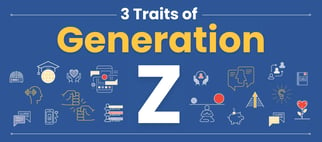Knowledge isn’t the only element of high performance. Faith, Fire, and Focus stand at the heart of improving performance. When these elements are blocked, performance suffers. Unleash these elements and performance soars.
Learn more about the source of Faith, Fire, and Focus in this excerpt from You Already Know How to Be Great, the New York Times bestseller by InsideOut Development founder Alan Fine.
Faith, Fire, and Focus are innate in all of us. As toddlers, we believe in ourselves. We're excited about and interested in everything. We're totally focused on whatever's at hand. We're into everything. That's why Mom and Dad have to nail down everything in the house and cover the electrical sockets. We want to explore! Our insatiable curiosity is a manifestation of our Faith, Fire, and Focus.
Imagine what it was like when you were one year old. As you were exploring your world one day, you saw that Mom was holding a multicolored book. You had Faith—you believed that you could get that book. You had no reason to doubt it. You had Fire—you were excited about doing it. You had Focus—that was the only thing on your mind at the moment. So you went over and took that book away from her, and you explored it in every way you could. You looked at the bright colors. You listened to the noises it made as you banged it on the floor. As you handled it, you felt its smooth texture. And when you put it in your mouth, you discovered it tasted okay as well.
Quite quickly, however, you got bored with it. Then you noticed that one of Mom's friends was doodling on some paper with this slender, black, shiny thing, and you grabbed it in order to explore it. It felt good. It tasted okay when you put it in your mouth. But when you stuck it up your nose, it hurt. So you dropped it immediately and took Mom's book away again because that didn't hurt, it made good noise, and it felt okay. But you quickly got bored again with the book, and then you noticed that Mom's other friend had these long stringy things on his shoes that you could pull. So you yanked at them. But you couldn't get them to go anywhere, so you went over and grabbed at Mom's book yet again.
Now, what did Mom do the third time you tried to take her book away? In exasperation, she finally said sternly, "No! Go and play with something else. I'm trying to read this book." And that was probably the first emotionally scarring experience of your little life. Your most significant source of safety in the world was terrorizing you. Yet she still didn't shut down your curiosity. You went back. But this time you were in "watch-out" mode. You watched her face. You wanted to know—was she going to scold you or wasn't she? Because of this, you were hesitant as you reached for the book. Your concern was creating interference to your natural Faith, Fire, and Focus.
That's the moment in all our lives when learning starts to slow down. Once we go into watch-out mode, our defenses are up. We don't want another painful experience. So we're cautious. This is what happens in organizations when people's ideas are rejected and they get a "hand slapped,” so to speak. They immediately go into watch-out mode. They become cautious. And others who see it happen or hear about it also go into watch-out mode, particularly when compensation issues are at stake.
As we grow out of the toddler stage, we have more and more experiences that increase this watch-out mode. Developmental psychologists tell us that we learn half of what we learn in our entire lives by the time we're five or six years old. When I ask people what they think happens that slows down learning so dramatically when we're five or six, they typically reply, "We go to school.” School is where—if we haven't discovered it already—we learn that there's a "get approval" and a "not get approval" in this world. It's institutionalized in terms of passing or failing grades.
As we mature, we become involved in what we see as win-lose competition—in sports, in academics, in dating—sometimes even for attention and recognition in the family. We go to work, where organizations—by their very nature—put us in watch-out mode. Little by little, our Focus shifts from exploring and learning to avoiding and defending. Our Faith is shaken. Our Fire is dimmed.





